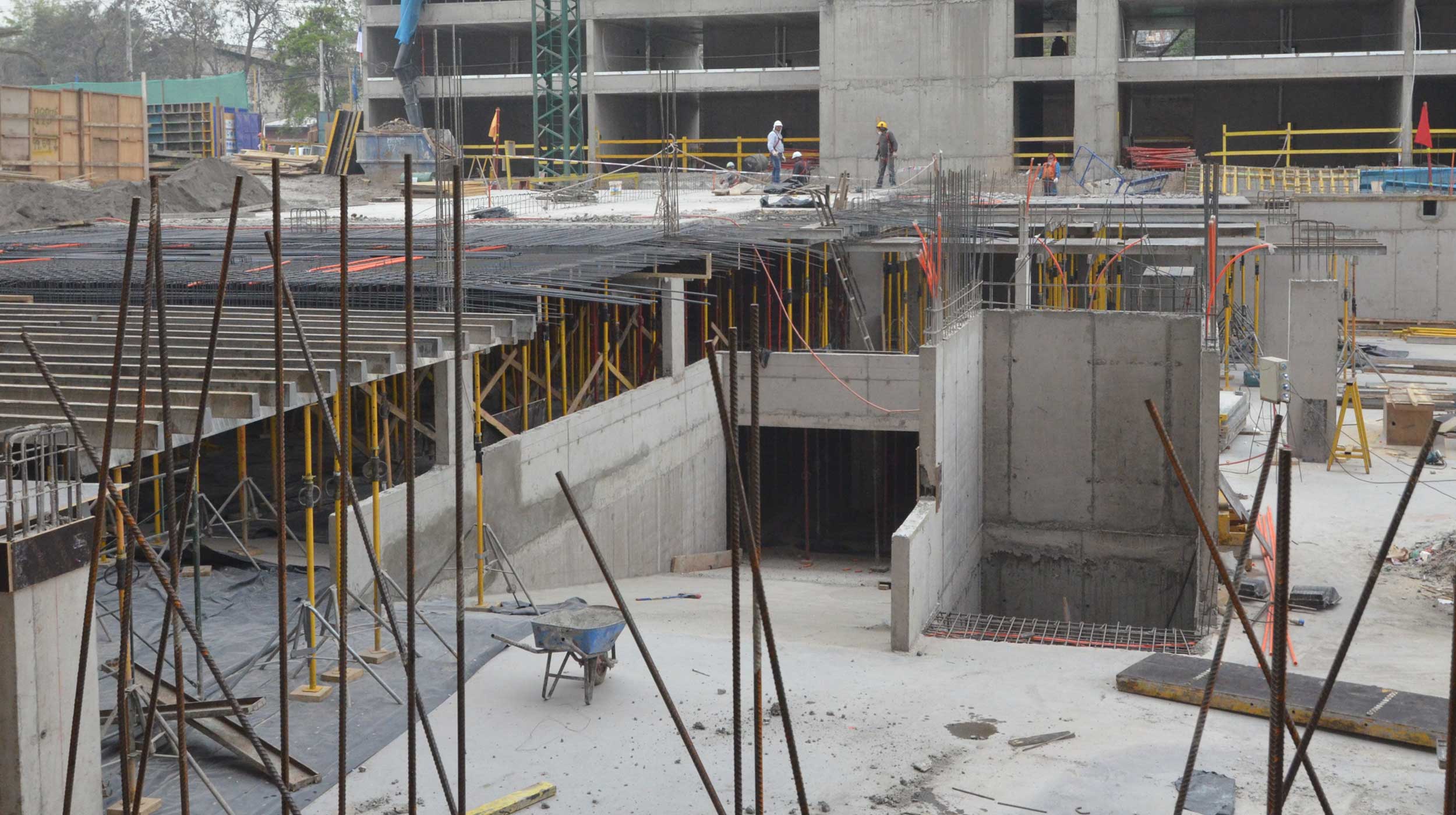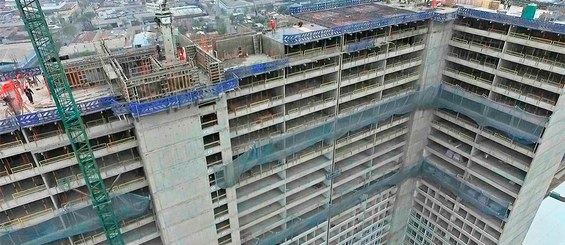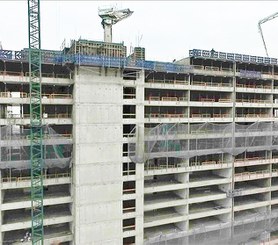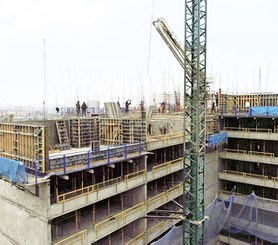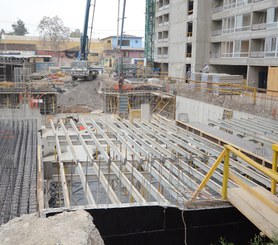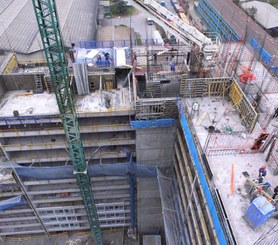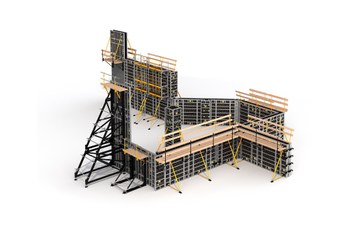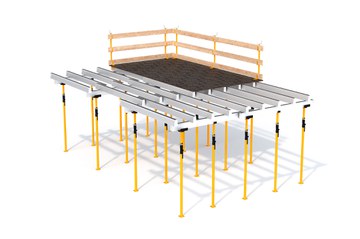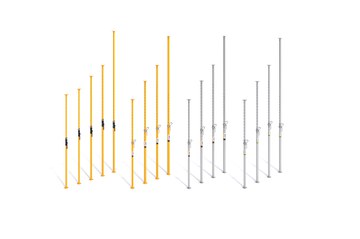Description
Chile has more seismic activity than any other country in the world, a fact that makes construction regulations not only extremely strict but subject to continual revision. The criteria set out in regulations must be followed for all construction projects in the country, regardless of the building’s final purpose.
In accordance with these regulations, the Poeta Pedro Prado condominium was built by Maestra Construction Firm in a residential neighbourhood near the centre of the national capitol, Santiago. The two towers boast 27 storeys each, with 2,400 m² per floor and a 3,000 m² car park. The building is extremely well insulated both acoustically and thermally by certified energy-efficient materials employing the latest technology available. All firms participating in the project are ISO 9001 certified a testament to the quality management principles by which they operate.
ULMA solution
ULMA provided personalised service from the very outset of the project, furnishing perfectly-suited technological solutions according to a carefully planned schedule of delivery, reuse, and rotation of the let material.
The ORMA System clearly demonstrated the time savings it can provide in wall construction. Each tower, with 1,490 m² of double-sided walls, was constructed using 65% ORMA formwork combined with conventional climbing brackets to construct the blind walls. Equipment rotation was planned down the minutest detail so as to ensure maximal performance. To the same end, the slabs – set at 2.52 m – were propped with SP-30 Props, the strength of which reduced the total number of props needed by 25%.
The BTM System was employed to form both the residential and parking slabs, chosen for its ease of use and ability to adapt to any geometry. NEVI Formwork was used to form the pillars.

